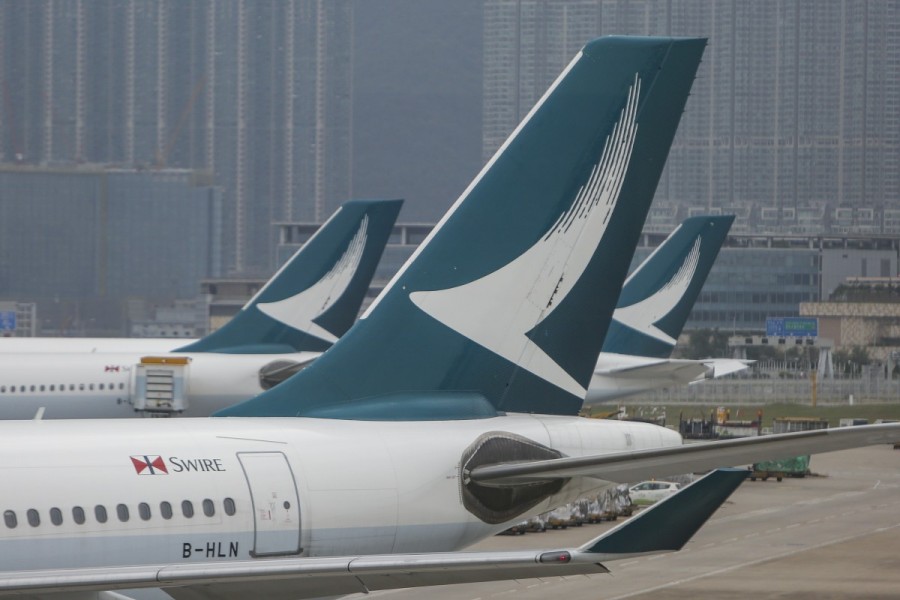Hong Kong’s Cathay Pacific has grounded two-fifths of its passenger fleet for the “foreseeable future”, warning it will not survive Covid-19 unless it restructures and adapts for a post-pandemic future.
Executive director Ronald Lam Siu-por said it was clear the 73-year-old airline was “facing a long and uncertain road to recovery” as it planned a sweeping restructuring that could be unveiled as soon as next month.
The beleaguered flag carrier on Monday revealed its planes were just 19.9 per cent full in August, the lowest since it first began reporting load factors.
The carrier also said that 40 per cent of its fleet – or 72 planes – would be parked outside Hong Kong, up from an earlier prediction of 60, as the airline requires fewer planes in the near term.
“We are weathering the storm for now, but the fact remains we simply will not survive unless we adapt our airlines for the new travel market,” Lam warned. “A restructuring will therefore be inevitable to protect the company, the Hong Kong aviation hub, and the livelihoods of as many people as possible.”
Last week, Cathay Pacific and Cathay Dragon said they would not take further government wage subsidies, paving the way for job cuts. The airline’s subsidiaries, however, will be taking more help.
The airline group carried just 35,773 people last month, down from the 42,984 flown in July. By way of comparison, Cathay carried 4.46 million people in August of last year. The airline has suffered a 99 per cent collapse in its daily passenger numbers overall.
Cathay was saved in June by a HK$27.3 billion Hong Kong government cash injection, which formed part of a wider HK$39 billion funding package topped up by shareholders.
The bailout was a welcome cushion after the HK$9.87 billion loss Cathay recorded in the first six months of 2020, but the airline said it was still burning through HK$1.5-2 billion of cash per month.
Hong Kong International Airport said last Friday it handled just 84,000 travellers in August, down from July’s 96,000. It has seen a 98.6 per cent decline from the same period last year amid the coronavirus pandemic, reports South China Morning Post.


